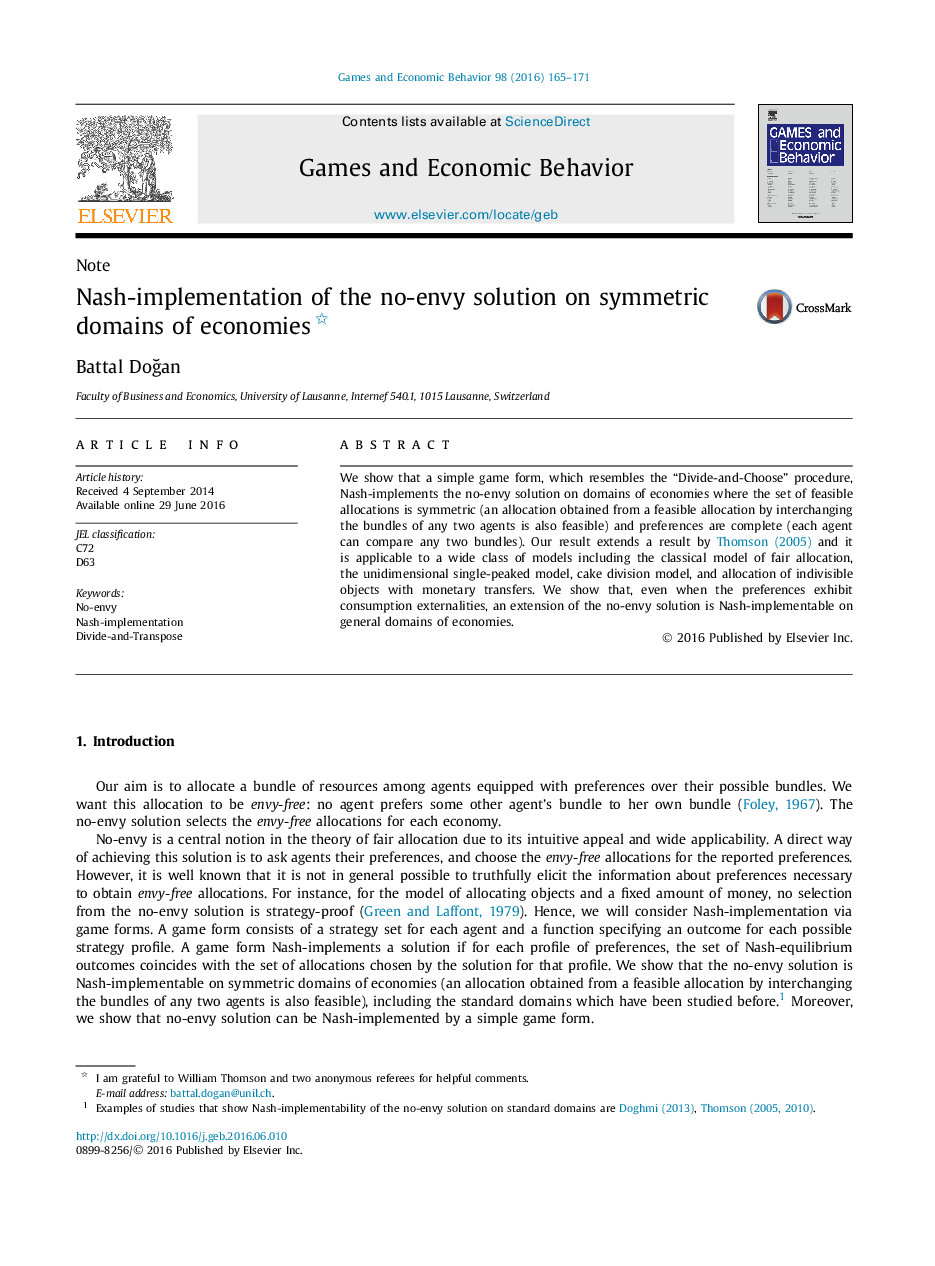| Article ID | Journal | Published Year | Pages | File Type |
|---|---|---|---|---|
| 5071484 | Games and Economic Behavior | 2016 | 7 Pages |
Abstract
We show that a simple game form, which resembles the “Divide-and-Choose” procedure, Nash-implements the no-envy solution on domains of economies where the set of feasible allocations is symmetric (an allocation obtained from a feasible allocation by interchanging the bundles of any two agents is also feasible) and preferences are complete (each agent can compare any two bundles). Our result extends a result by Thomson (2005) and it is applicable to a wide class of models including the classical model of fair allocation, the unidimensional single-peaked model, cake division model, and allocation of indivisible objects with monetary transfers. We show that, even when the preferences exhibit consumption externalities, an extension of the no-envy solution is Nash-implementable on general domains of economies.
Related Topics
Social Sciences and Humanities
Economics, Econometrics and Finance
Economics and Econometrics
Authors
Battal DoÄan,
